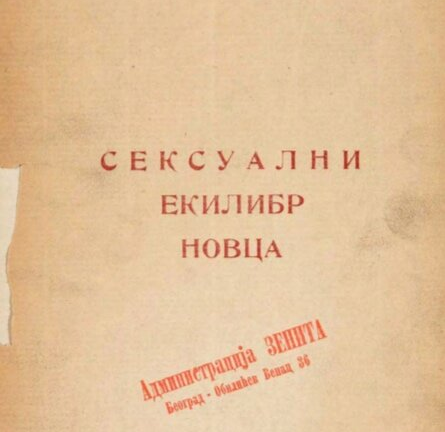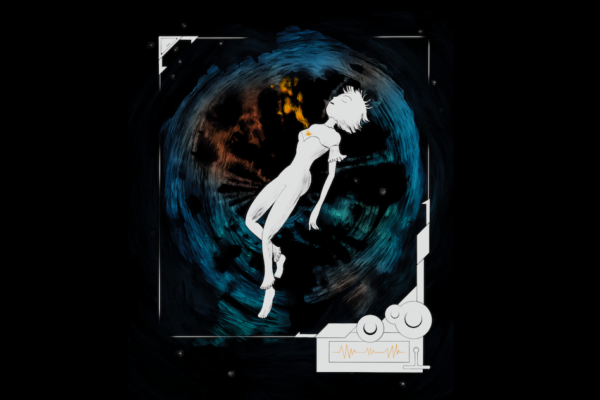









![The 6th Party
If nothing isn’t necessary, then breathing isn’t necessary; breathing is also one-sidedly
twofold: Inhalation and exhalation, which are an elementary and natural way of receiving and
giving, which are manifested through the one-sidedly twofold invocation of nothing through the
dynamics of words: . . “Just that, . . that isn’t nothing?!” . . . . in it, within this dynamic, “you may
admire philosophers who approach a solution to, a dissolution of, and a resolution to the
Absolute, and the determination of the indeterminate and the definition of infinity” . . . . . . — It
has been said that the first pole, the stronger (+) pole, the active pole, the Death pole, the
conventional, positive pole, is found in nothing through the negative, weaker pole, so that, like a
grinning debtor, it covers up the trace of nothing, and in a one-sidedly twofold way, rejects its
own positivity; — while the other pole, the negative or passive (–) one, which is ON NO
ACCOUNT A TRAGIC ONE, actively yet mystically points to the RAW SUM of nothing . . . . . (
. . . Compte rendu . . . . . . . In invention of gallium . . . . ) . . . . . . . . . The currency (+) question, no
matter how miniaturized or aggrandized, cannot be resolved independently of the sexual
question, or vice versa, because the currency question is inextricably entwined with nothing, and
because, along with the sexual question, it represents a quadruple . . (from a one-sidedly
twofold literary . . . . perspective) . . issue of balanced relativity of living and dying. “DER
BEIDEN GRUNDTYPEN DES PHILOSOPHIERENS” From the most important (+) and the most
conventional perspective, that which has the most currency is that which cannot be had, cannot
seen, yet can be kept silent about the hymen (nothing). From a faunal . . brutally calculated,
sexual, . . perspective, therein lies the intrigue of money [NB: “money” is upside down], the
price . . . . , the secret of a monetary, fluid (+) perspective . . . . . . . of being (Of the Dance of
Death, a positive Dance) toward dying . . (–), which is the unconventional . . phenomenon of life
. . . . . . . . Voronoff . . Einstein . . Steinach . . . . . . . . . . . . . . . . . . . . . . . . . . “Go to it. It runs from
you; run from It, It’s following you” . . . . . From the seen and unseen, therefore, currency-wise
(+) . . . . . . “The validity of all contracts based on money are on shaky ground” . . . just like the
sexual (–) question, which is the twofold hermaphroditic question of nothing: . . . . . . . . . . . . . . . . .
. . . . . . . . . . . . . . . . . . . . . . . . . . . .
. . . . . . . . Currency is a conventional (+) metric, and the question of sexual difference (the
balance); yet an unconventional, sexual (–) fixation is the question of the currency total (sum);
and both of these, the metric and the fixation, cancel each other in nothing but without
separating the seen and the unseen.
25](http://columbiajournal.org/wp-content/uploads/2021/11/mid-25.1.png)




Author and Translator Bios
Author’s Bio:
MID was the pseudonym of a Mita Dimitrijević, of whom little is known. He was a major yet elusive figure affiliated with Zenithism, a 1920s Yugoslav avant-garde movement that embraced cross-genre writing as a central tenet of its poetics. He published two books, Seksualni ekilibr novca (The Sexual Equilibrium of Money, 1925) and Metafizika ničega (The Metaphysics of Nothing, 1926), and two short prose pieces, both titled “Form Devours Spirit,” and then he seemingly disappeared. He did exist because several witnesses, including Risto Ratković (a contributor to the 1920s Yugoslav avant-garde magazine Zenit) and Djordje Kostić (a member of the Belgrade surrealists), confirmed they met MID and read his two books. In addition, the Serbian poet Dragutin Kostić dedicated his poem, “Umesto ludila” (“Instead of Lunacy”) to “Jack the Ripper of all lies and a universal Zarathustra, my dear friend MID–Mita Dimitrijević, a poet and philosopher.” MID’s work is in the public domain.
Translators Bio:
Steven Teref’s translations include Ana Ristović’s Directions for Use, shortlisted for the National Book Critics Circle Award, Best Translated Book Award, and the National Translation Award, and Novica Tadić’s Assembly. His translations have appeared in The New Yorker, Asymptote, Vestiges, and elsewhere. Steven is a co-editor with Aleksandar Bošković of Zenithism (1921–1927): A Yugoslav Avant-Garde Anthology, forthcoming from Academic Studies Press in 2022.
Maja Teref’s translations include Ana Ristović’s Directions for Use, shortlisted for the National Book Critics Circle Award, Best Translated Book Award, and the National Translation Award and Novica Tadić’s Assembly. Her translations have appeared in The New Yorker, Brooklyn Rail, Asymptote, and elsewhere. Her translations of the Yugoslav avant-garde writers Branko Ve Poljanski and MID are forthcoming in Zenithism (1921–1927): A Yugoslav Avant-Garde Anthology (Academic Studies Press, 2022). Maja is a past president of Illinois Teachers of English to Speakers of Other Languages (IL TESOL BE). She teaches English at the University of Chicago Laboratory Schools.




